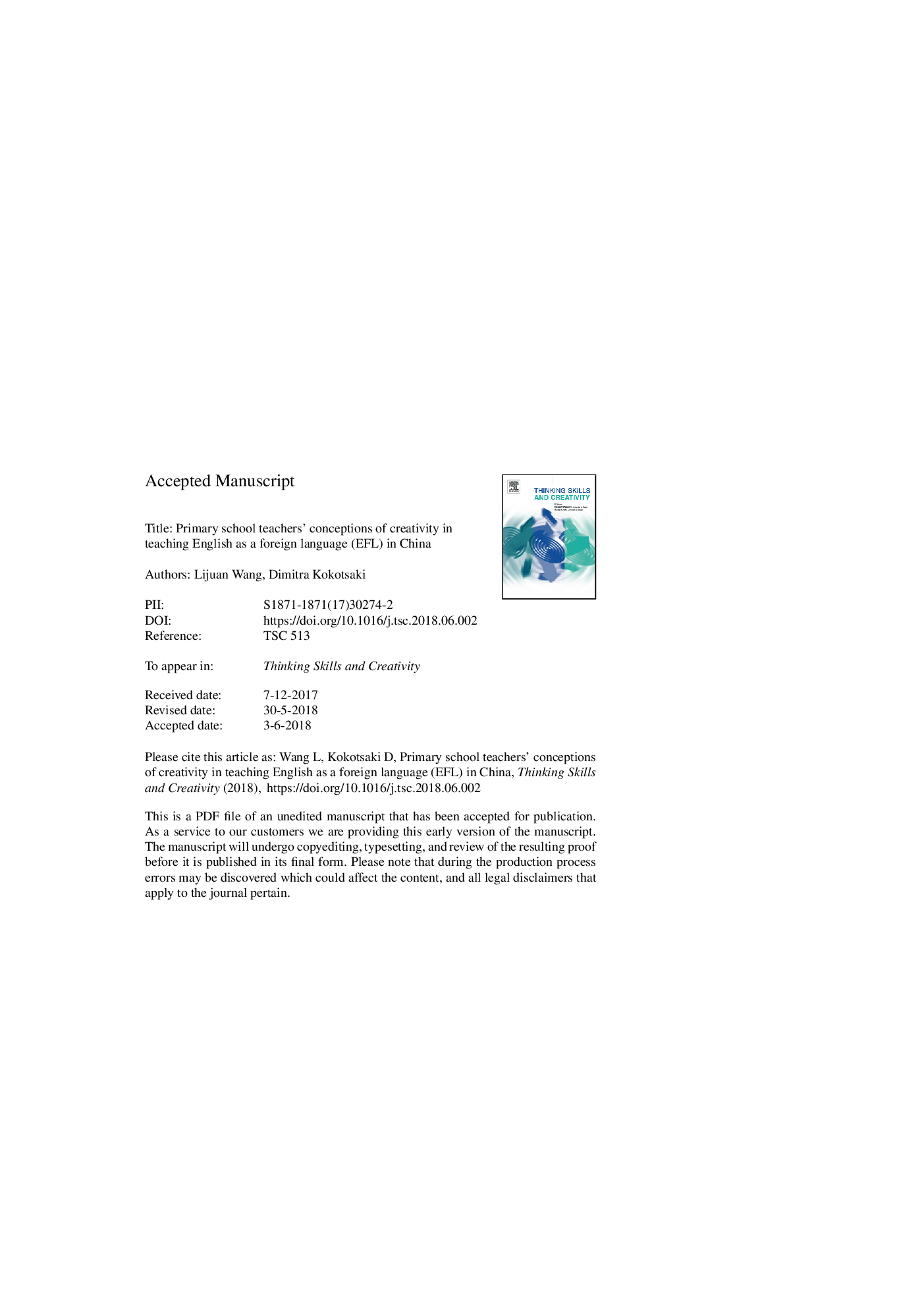| Article ID | Journal | Published Year | Pages | File Type |
|---|---|---|---|---|
| 6851780 | Thinking Skills and Creativity | 2018 | 51 Pages |
Abstract
Teachers' crucial role in realising creativity within their subject and providing more opportunities to foster creative abilities in pupils have been widely recognised. However, few studies have focused on what constitutes creativity in a particular subject such as English. This research explored teachers' conceptions of creativity in primary EFL classroom, with a particular focus on the Chinese context. Questionnaires and interviews were conducted to explore how EFL teachers conceptualised creativity in their practice using the phenomenographical approach to categorise teachers' conceptions. The findings showed that most of the teachers valued creativity in EFL, and regarded fostering creative thoughts as being important for personal development as well as effective EFL learning. Teachers' conceptions of creativity in EFL were categorised into creative products, cognitive development, creative teaching approaches and freedom in choice and expression. Favoured approaches to facilitate creative teaching included the use of art forms and playful activities, and the establishment of a stimulating classroom environment for creative ideas. However, some teachers tended to have limited conceptions and were uncertain about the relationship between creativity and foreign language learning. Challenges included an overcrowded curriculum, limited teaching time, exam pressures and a social and cultural context characterized by lack of support. The findings are discussed in terms of their educational implications.
Related Topics
Social Sciences and Humanities
Psychology
Developmental and Educational Psychology
Authors
Lijuan Wang, Dimitra Kokotsaki,
